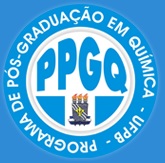Presentation
Overview, goals and history of the PPGQ
OVERVIEW
The Postgraduate Program in Chemistry (PPGQ) of the UFPB began in August 1986 with the Master's Degree in Chemistry. In 1999, a PhD course in Chemistry was created. Both courses train professionals in the four areas of concentration: Inorganic, Analytical, Organic and Physical-Chemical. Since its inception, 296 dissertations and 122 theses have been completed. Currently, 62 master's and 88 doctoral students are enrolled. The PPGQ has 37 teachers, 31 of whom are permanent, of which 17 are CNPq researchers.
The Postgraduate Program in Chemistry of the UFPB currently has concept 5 in the triennial 2010-2012 evaluation of CAPES (Master's / Doctorate).
Among the research lines of the PPGQ are: materials chemistry; coordination and organometallic chemistry; biological and medical inorganic chemistry; medicinal chemistry; synthesis, modeling and characterization of organic compounds; petrochemicals, biofuels and lubricants; chemometrics; quantum computational chemistry; physical-chemical characterization of biofuels and food; development of instrumentation, methodologies and automatic systems of chemical analysis; environmental chemistry.
In terms of infrastructure, the following equipment is available to students and researchers: X-ray diffractometer, atomic force microscope, surface area meter by nitrogen adsorption, micro-Raman spectrometer, thermal analysis systems (TG, DTA , DSC, PDSC), gas chromatograph coupled to a mass spectrometer, UV-visible spectrophotometers, infrared spectrophotometers, induction plasma atomic emission spectrometer, colorimeter, high energy mill, viscometer, atomic absorption; ICP-OES; HPLC; gas chromatograph with FID, 02 computer clusters for performing quantum calculations, high power data processing workstations, ELISA plate reader, refrigerated microcentrifuge, 60 MHz NMR, 200 MHz and 500 MHz, etc.
OBJECTIVES OF THE PPGQ
The Graduate Program in Chemistry of the UFPB has the purpose of training human resources in the Chemistry area, at Masters and PhD levels, enabling them to work in Higher Education Institutions, Research Centers, Industries and Secondary Schools . The training of these professionals is guaranteed by the range of disciplines offered, by the quality, diversity and contemporaneity of the researches developed, which has led to an increasing number of publications in quality journals by the faculty accredited in the Program, always emphasizing the participation of the oriented students.
This Postgraduate program aims at the training of qualified human resources, who possess mastery and deepening of knowledge in Chemistry and related areas, demonstrated through the quality of Master's Dissertations and PhD Theses. In this context, each postdoctoral student is guided by a researcher, who should guide him, not only in the conduct of his research work, but also in the choice of the list of subjects to be studied, in the final essay of the Dissertation or Thesis and, above all, encouraging the graduate to write and publish the results of his research in specialized and quality journals, in order to comply with the requirements of the Program, as well as of the development agencies.
The specific objectives of the Postgraduate Program in Chemistry, at Masters and Doctoral levels, can be summarized as follows:
to train qualified human resources for the exercise of higher education and research in the field of Chemistry;
to encourage research in the field of Chemistry, especially with respect to contemporary themes, aiming at a better integration and cooperation between National and International Higher Education Institutions, the various sectors of society and the population in general;
produce and disseminate knowledge in the field of Chemistry, always seeking specialized and quality journals;
to intensify the integration between Undergraduate and Postgraduate courses, giving postgraduate students the opportunity to start their co-orientation experiments of students of Scientific Initiation (fellows or volunteers), always under the supervision of their adviser / researcher. This fact benefits both the undergraduate student, who receives a more direct and intensive orientation, as the post-graduate, who has the possibility of starting their experiences in orientation;
stimulate the articulation / integration between teaching, research and extension, disseminating and applying the knowledge acquired in research, undergraduate and postgraduate courses, and also collaborating, whenever possible, in university extension projects;
strengthen, through the Teaching Internship, the improvement of the teaching of the Chemistry Undergraduate Course (modalities Bachelor and Licenciatura), with the simultaneous participation in the classroom, the postgraduate and the teacher responsible for
